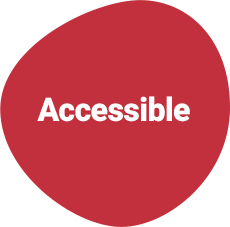- Actively Enrolling
Help Your Patients Discover a Potential Treatment Option for Chronic Limb-Threatening Ischemia (CLTI)
Interested in referring patients?
Phase 2 Clinical Trial:
Double blind randomized placebo controlled study to assess the feasibility of BGC101 (EnEPC) in treating PAD & CLI.
Evaluate the feasibility of an autologous cell preparation composed of a mixture of cells enriched for endothelial progenitor cells (EnEPCs) and multipotent adult hematopoietic stem/progenitor cells (HSPC) (BGC101), in the treatment of patients suffering from peripheral arterial disease (PAD) with critical limb ischemia (CLI) who do not have the option of further revascularization treatment.
Age & Gender
- Age > 18
- All Genders
Conditions
- No-Option Chronic Limb-Threatening Ischemia (CLTI)
- Rutherford 4-5
- Severe Peripheral Occlusive Arterial Disease
- Not Amenable to Further Revascularization
Testing
- Safety
- Amputation Free Survival
To see the Inclusion
and Exclusion Criteria
About
BioGenCell:
BioGenCell is dedicated to changing the lives of patients suffering from degenerative microvascular diseases.
We do so using revolutionary cell-therapy treatments aimed at significantly reducing pain and enhancing functionality.
Tissue Regenerative Activated Cell Therapy
Transforming Patients' Blood into a Life-Saving Medicine In 1 Day:

The Advantages of the BioGenCell Treatment:






Who May Qualify
Referring patients to a clinical study is an important decision.
Thank you for considering this study.
BioGenCell is dedicated to reducing the suffering of No-Option Critical Limb Ischemia (CLI) patients:
- No response to available treatments
- No option of revascularization treatment
- High risk of leg amputation
See the List Below to Learn More About Our Participation Criteria
Long Lasting Effect

Inclusion and Exclusion Criteria
Inclusions
Age > 18
Both genders
Rutherford 4-5
- Rest pain
- Non-healing ischemic ulcers
- Minor tissue loss
Severe peripheral arterial occlusive disease
- Toe pressure < 40 mmHg
- Ankle pressure < 70 mmHg
- cPO2 < 40mmHg